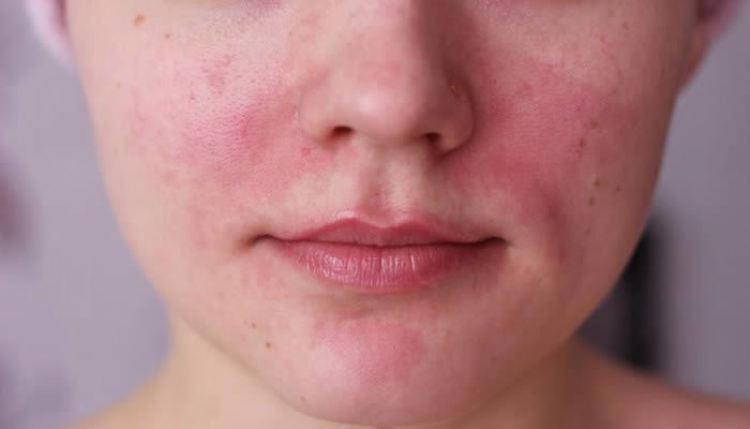4 Must-Know Causes of Rosacea
Rosacea, also regarded as acne rosacea, is a skin condition that causes pus-filled bumps and redness on the face. It’s an inflammatory skin condition that makes your face’s blood vessels visible. Flushing or blushing more quickly than the other people is a clear sign that you have rosacea.
Many people struggle with this condition because they often mistake it for a skin allergy, acne, or eczema. This chronic skin condition is commonly misdiagnosed as pimples or sudden redness. Although rosacea can be stubborn, it’s essential to find out its cause to seek immediate rosacea treatment.

Below are 4 common causes of this chronic skin condition:
1. Helicobacter pylori Bacteria
H. pylori is a spiral-shaped bacterium which grows within the digestive tract. It’s responsible for the production of a small polypeptide, known as bradykinin, which makes the blood vessels dilate. Skin experts have found that H. pylori bacteria play a role in causing rosacea.
According to research by the National Rosacea Society (NRS), H. pylori increases the production of gastrin hormone. This hormone helps regulate the stomach’s acid production, but at high levels it can lead to flushing, which is evidenced in rosacea.
2. Microscopic Mites
Mites are tiny bugs that live on the skin. Some probable trigger agents for rosacea include chlamydia pneumonia, mite-related bacteria, bacterial toxins, antimicrobial peptides, and staphylococcus epidermidis.
Demodex folliculorum is a type of mite which lives on the skin of most people. However, according to studies, those with rosacea have a higher number of these mites, especially in the papulopustular type. The bugs interrupt not only the usual skin barrier but also stimulate an abnormal immune response.
Although Demodex folliculorum are harmless, some people have an unusual amount of these bugs or have high sensitivity to the mites. If you have a high number of these mites, you may experience skin irritation.
3. Genetics
Rosacea can be inherited, meaning that if a family member has it, they can pass it to their offspring. Many rosacea patients have a close relative who has the same condition. The human leukocyte antigen (HLA) complex is a family of several genes that are believed to cause rosacea.
The HLA complex assists the immune system in differentiating the body’s proteins from proteins that are made by external intruders. All HLA genes differ in variations allowing everyone’s immune system to fight a broad range of foreign proteins. Mutations in HLA genes contribute to abnormal inflammation, which is a common characteristic of rosacea.
The glutathione S-transferases (GSTs) is another common group of genes that are said to cause rosacea. These are the genes responsible for the production of proteins that safeguards the cells from oxidative stress. Oxidative stress transpires when the unstable molecules, also known as the reactive oxygen species (ROS), build up to high levels that can kill or destroy the cells.
Variants in some GST genes have a close relationship with the amplified risk of developing rosacea. According to researchers, these variants lower the capability of GSTs to shield the skin cells from oxidative stress, which eventually causes inflammation and cell damage.
4. Blood Vessel Abnormalities
Dermatologists state that abnormalities in the facial blood vessels lead to persistent redness, flushing, and make the blood vessels visible. The causes of facial vessel abnormalities are not yet known. However, the sun’s UV rays can lead to dilation of blood vessels as well as degeneration of elastic skin tissues.
The facial blood vessels of rosacea patients dilate easily, resulting in redness and flushing of the skin. Rosacea is also associated with abnormal inflammation. Inflammation is an ordinary immune system response to extraneous intruders like bacteria, but unusual inflammation affects the skin’s ability to safeguard the body.
Conclusion
Rosacea can lower one’s self-esteem, but although this chronic skin condition is incurable, seeking rosacea treatment helps minimize its effects and discomfort. It’s advisable to talk to a doctor in case of intense feelings or frustrations. Furthermore, avoid triggers that can lead to rosacea.
